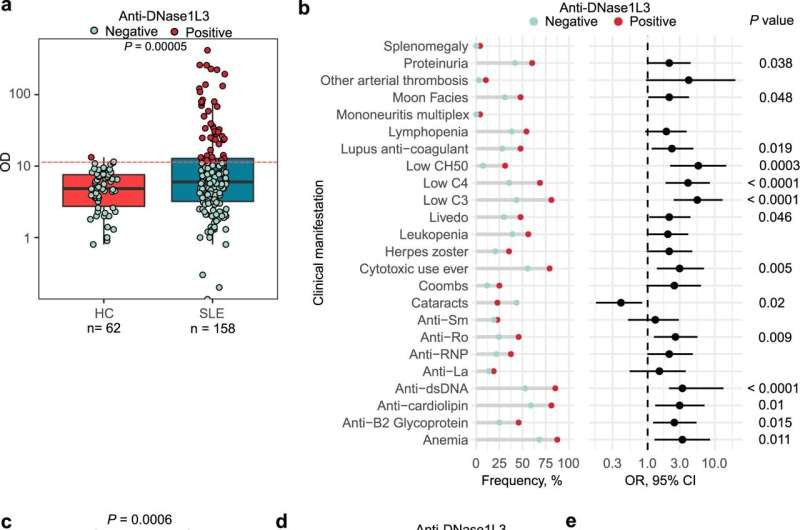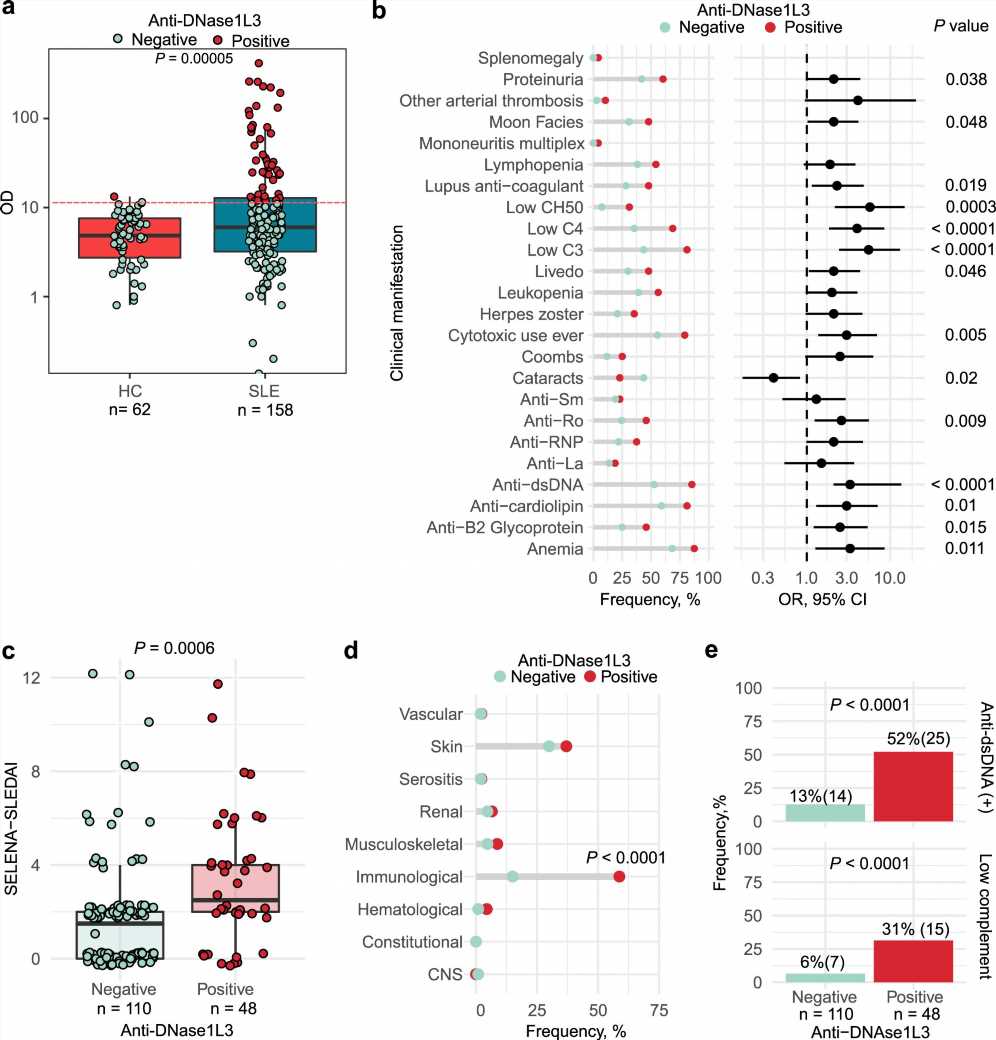
In an effort to understand the origin of systemic lupus erythematosus and why some patients present with more severe disease than others, Johns Hopkins Medicine researchers say they have identified a type of autoantibody that may worsen the condition and have also found how these autoantibodies originate. They say their findings have implications for biomarker testing in lupus and may help identify patients that need early and aggressive treatment.
Systemic lupus erythematosus (or SLE) is an autoimmune condition, meaning the body’s own antibodies that normally protect against pathogens attack healthy cells and proteins. These SLE antibodies can cause inflammation and damage across multiple organ systems.
Previously, researchers could not pinpoint why the severity of SLE is so varied among patients who have a type of antibody that attacks DNA, known as anti-DNA antibodies. In a report published in Nature Communications on March 20, investigators say these differences in SLE severity are due to a subset of anti-DNA antibodies attacking a crucial enzyme in the body called DNase1L3.
“Our findings provide a simple explanation for the differences of anti-DNA antibodies in SLE by demonstrating that some of these autoantibodies have multiple functions,” says corresponding author Felipe Andrade, M.D., Ph.D., an associate professor of medicine in the Division of Rheumatology at the Johns Hopkins University School of Medicine.
“This research may be the closest we’ve come to uncovering the root cause of anti-DNA antibodies,” adds Eduardo Gómez-Bañuelos, M.D., Ph.D., instructor of medicine Johns Hopkins University School of Medicine in the Division of Rheumatology, who is the first author in the manuscript.
Anti-DNA antibodies are a hallmark of patients with SLE. However, not all anti-DNA antibodies will cause disease, and their origin remains unknown. For this study, clues as to why this phenomenon occurs came from the discovery of a different antibody that attacks the enzyme DNase1L3. This enzyme helps clear DNA from dead cells, but when it is blocked by antibodies, DNA builds up in the body, causing inflammation. While studying these antibodies, researchers found that a subset of anti-DNase1L3 antibodies were also anti-DNA antibodies in patients with severe SLE.
To measure the association between anti-DNase1L3 and severe SLE, researchers analyzed the blood and serum samples from 158 patients with SLE and 62 people who don’t have lupus. They found that antibodies that attack DNase1L3 and DNA were both associated with high levels of illness. However, this association was only significant when the patients were positive for both antibodies, as opposed to those patients who only had one class of antibody.
Based on these findings, researchers also investigated the function and origin of these antibodies using molecular analysis. They were surprised to discover that antibodies previously thought to be specific to either DNA or DNase1L3 were actually a single antibody with the ability to attack both molecules. Andrade speculates that this unique type of antibody explains the differences in SLE severity observed in patients, and why patients that test positive for only one antibody may not experience severe SLE.
He says their findings also challenge the current theory that DNA itself causes the origination of anti-DNA antibodies. The team instead believes that a subset of anti-DNA antibodies arises from anti-DNase1L3 antibodies, and it acquires the additional ability to attack DNA as a result of antibody mutations.
“We hope these findings will improve ways of identifying patients with severe lupus and also help doctors choose appropriate treatments,” says Andrade. “This research may help uncover underlying mechanisms of lupus and why it affects patients differently.”
More information:
Eduardo Gomez-Bañuelos et al, Affinity maturation generates pathogenic antibodies with dual reactivity to DNase1L3 and dsDNA in systemic lupus erythematosus, Nature Communications (2023). DOI: 10.1038/s41467-023-37083-x. www.nature.com/articles/s41467-023-37083-x
Journal information:
Nature Communications
Source: Read Full Article
